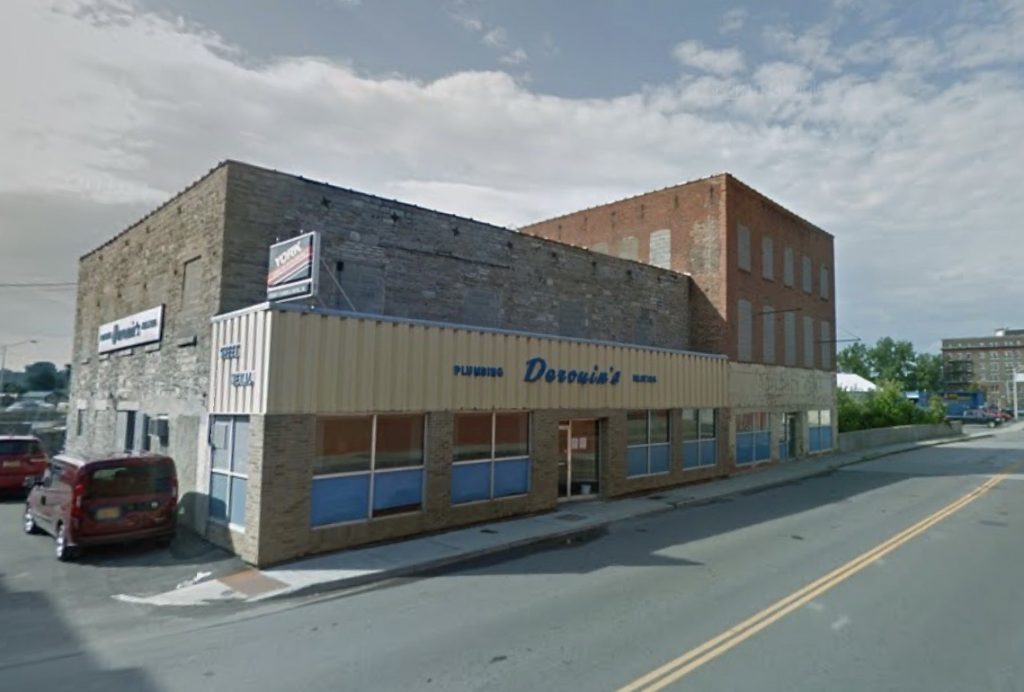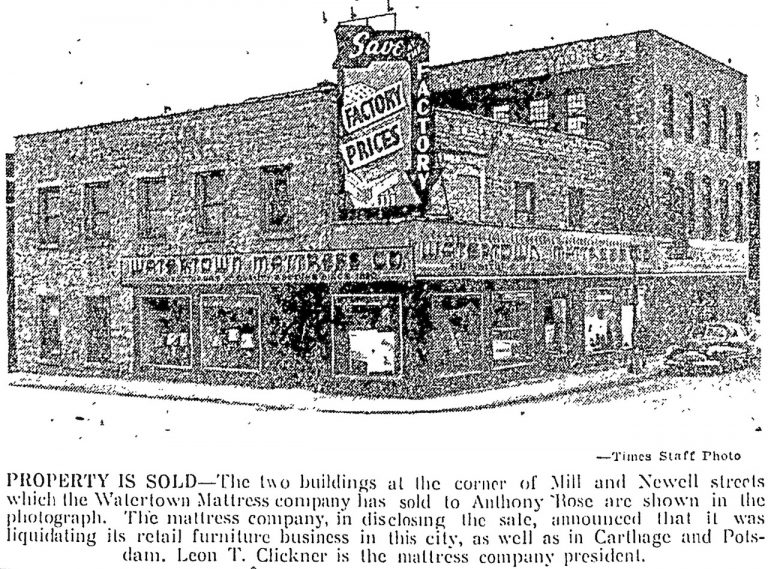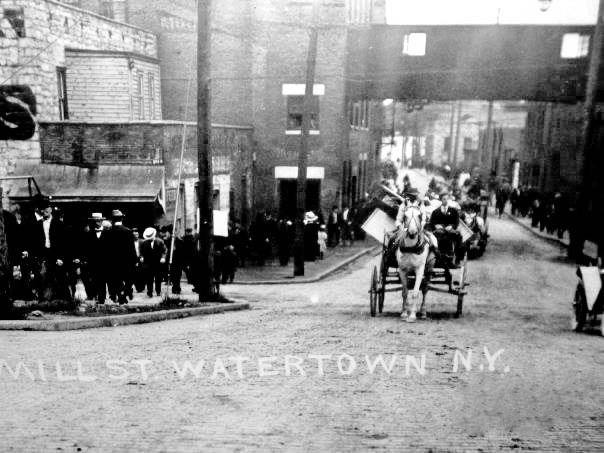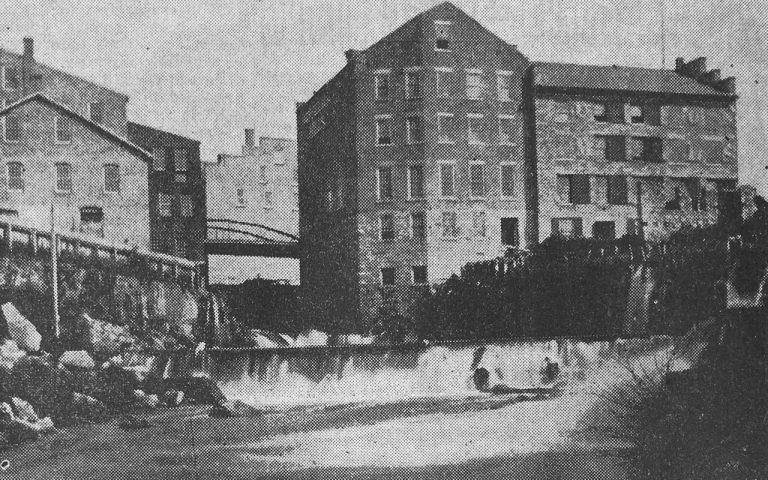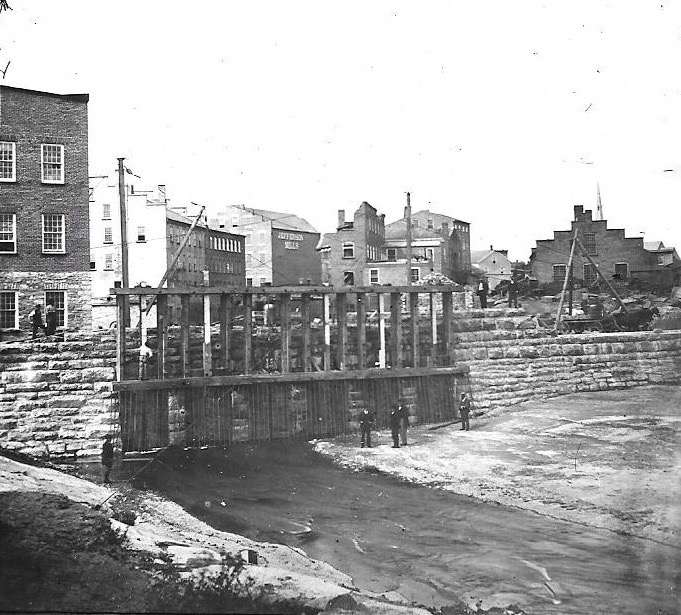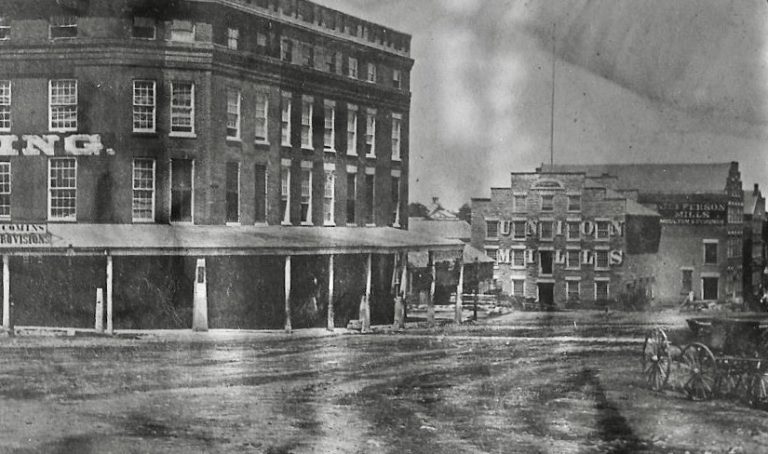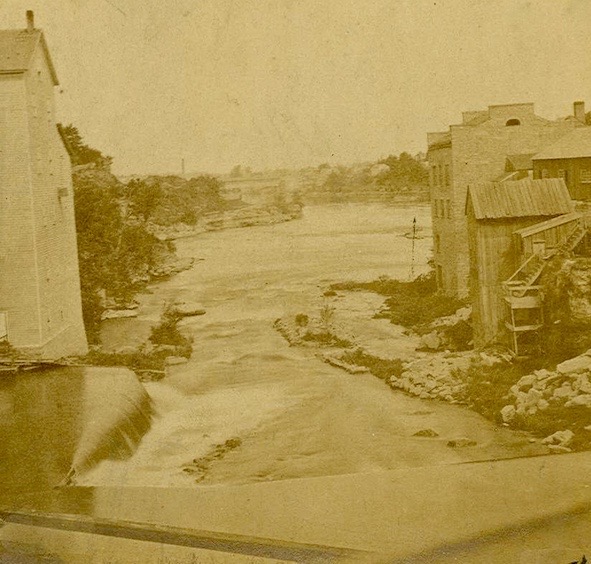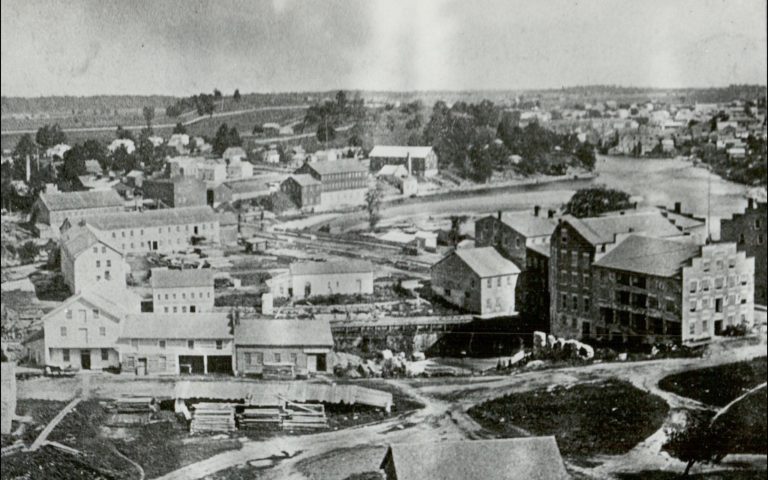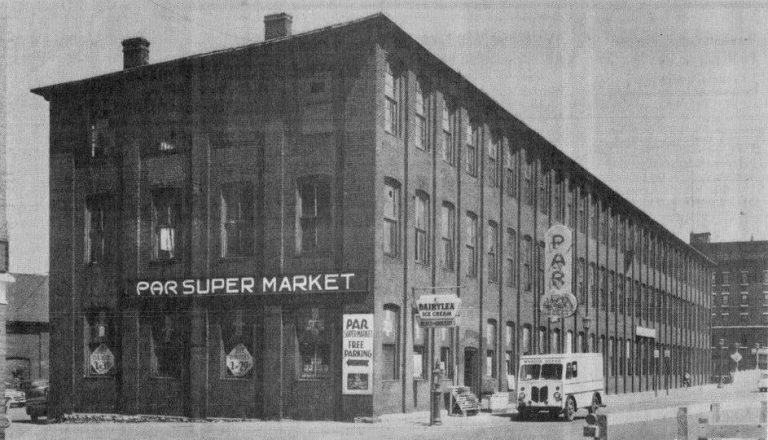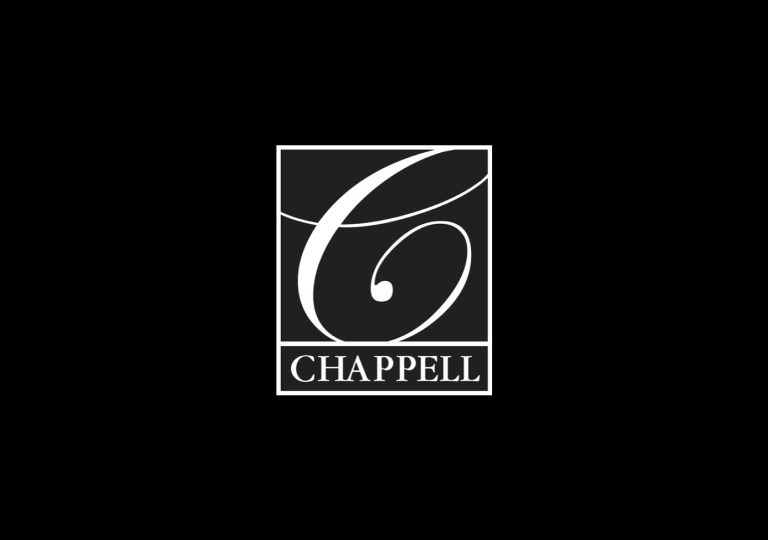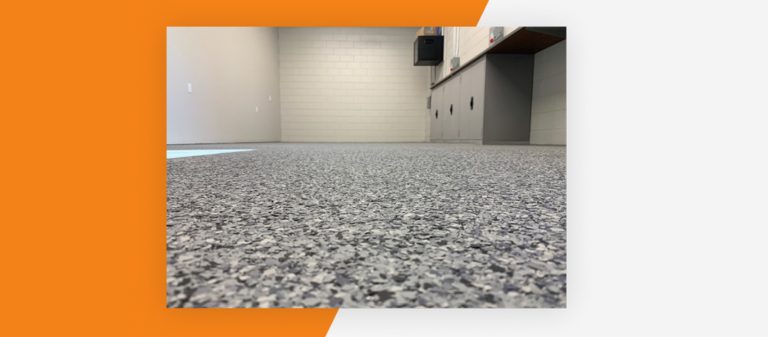Union and Jefferson Mills Were Two of the Old Mill Street Mills from the 1800s
The first of the Mill Street Mills to be erected goes all the way back to 1806, when Jonathan Cowan built a grist mill right on the south side of the Black River, approximately where Derouin’s Plumbing & Heating was located for many years before closing for good this past December. If the name Cowan sounds familiar, saying “long before” being called Kelsey Creek, it was known as Cowan’s Creek, would be a bit of an understatement, considering the local newspapers continued to call it as such up until the 1950s.
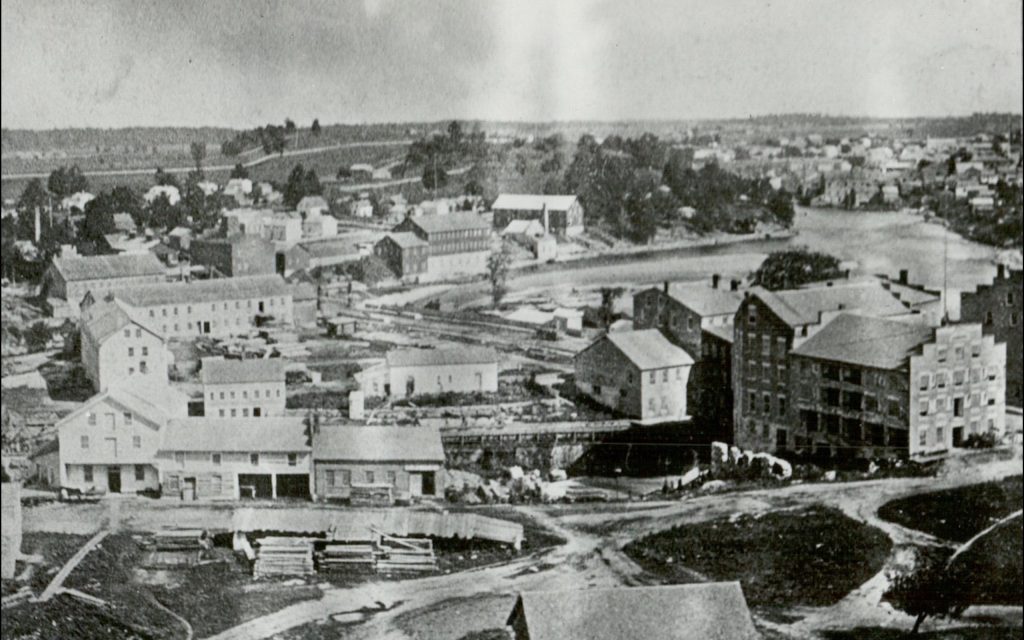
Though there is nothing of record in the newspapers on hand, the Cowan grist mill was most likely the first mill built in the area according to an informative Watertown Daily Times article written back on January 14, 1875–
It was a small wooden building, and had two run of stone. Only about three years later another mill was built on the present site of Messrs. Taggart’s & Davis’s paper mill. This mill had three run of stone, and was otherwise larger than the first. It was owned and run by Judge Clark during the war of 1812, and did an extensive business.
In 1824-5, another mill was built by H. H. Coffeen, on the lower dam, south side of the river, where the mill of Converse and Flynn now stands. This mill had five run of stone, and a successful business was conducted there until 1869, when the flood destroyed a large part of it.
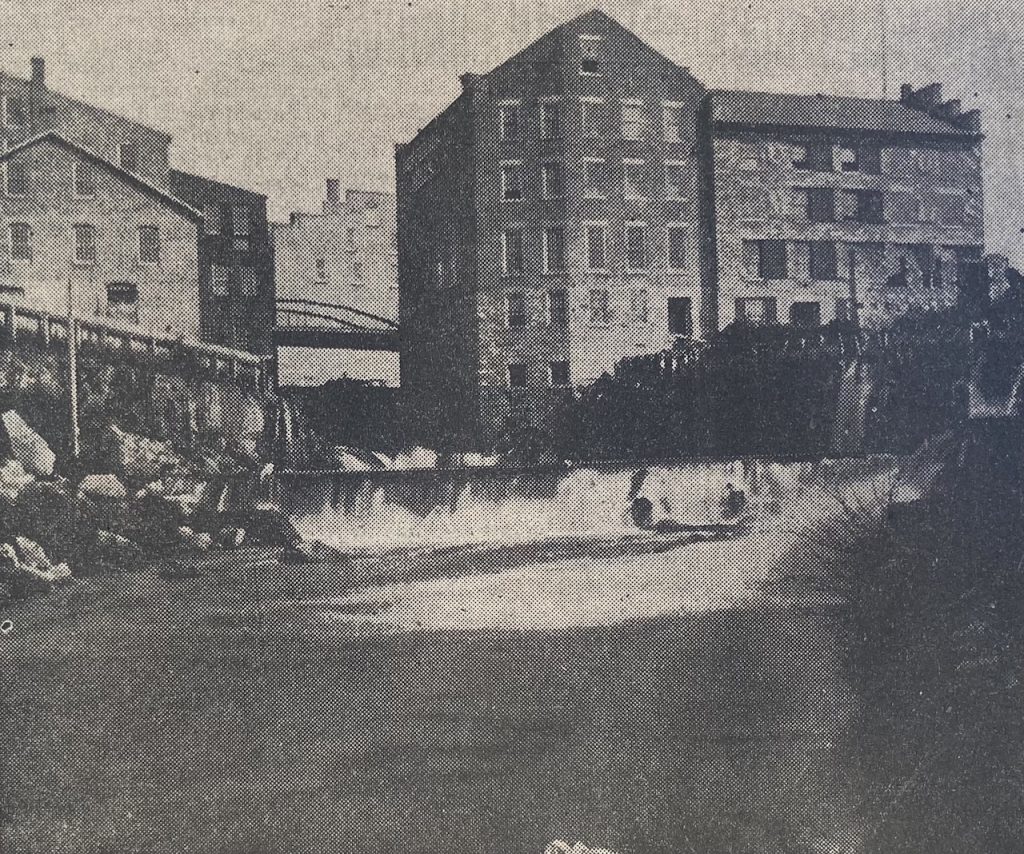
The power of the Black River became the center of industrialization in Watertown, with mills being built on, where else, Mill Street, but later in the Factory Square area. A mill was built there, on what was called the Factory Dam, and proved successful until it was destroyed in the Great Flood of 1869.
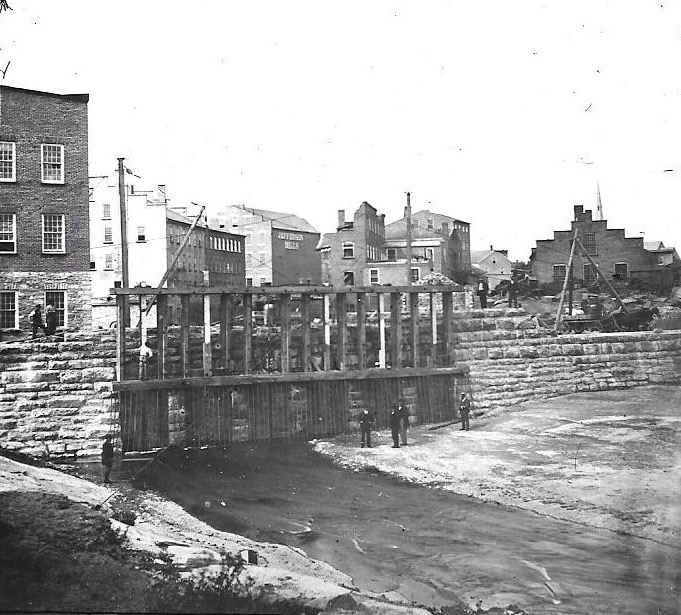
It’s no coincidence that Moulton Street runs between both the Mill Street mills and Factory Square, as Philo Moulton had a hand in erecting many of the mills in the village’s early history. The Excelsior Mill on River Street, which later became A. H. Herrick and Sons, and the Jefferson Mill in 1855 were both built by Moulton, who had purchased a large stone mill built by Joseph Henderson and demolished it. Moulton also built the Cataract Mill on Moulton Street, shown in numerous photos, with the old Mill Street suspension bridge.
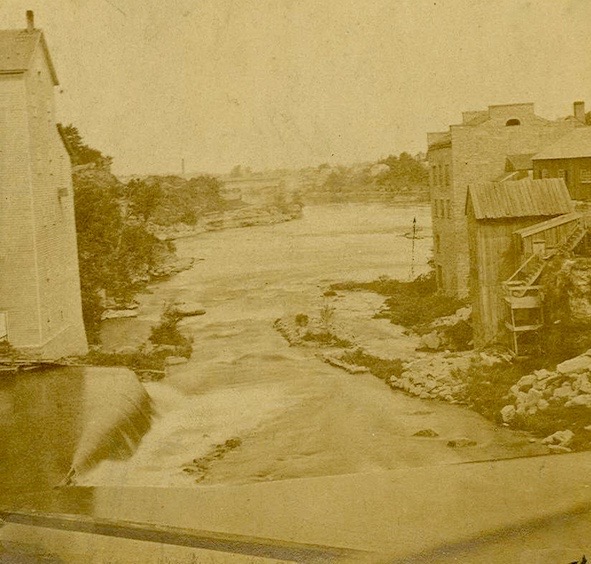
Union Mills was erected in 1835 by Joseph Sheldon and necessitated the construction of the first wooden Mill Street bridge at the time. In 1838, the mill was acquired by Hiram Merrill, Eli Farwell, and Josiah W. Baker, who sold it to Eli Farwell & Co., which, years later, in 1895, became incorporated as the Farwell & Rhines Company.
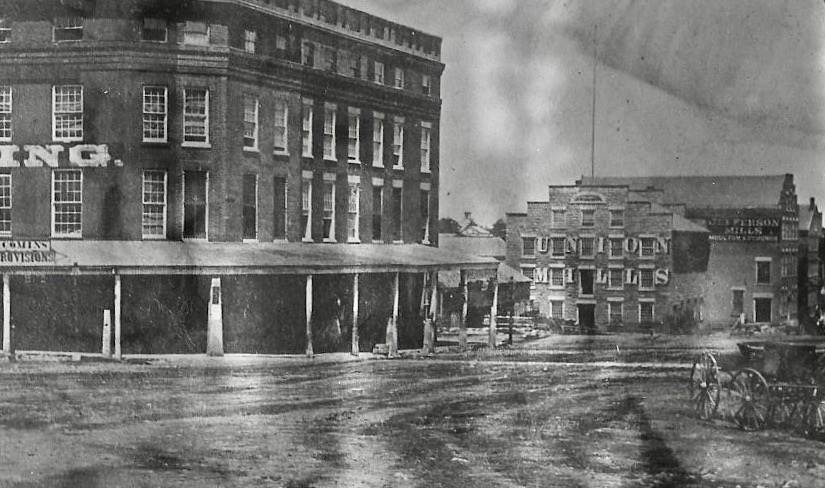
Prior to this, in 1882, the Jefferson Mill became part of the Knowlton Bros. operation and transitioned to making paper. In 1903, Knowlton Bros. incorporated and also acquired the Union Mill from the Jefferson National Bank, remodeling it and using the upper floors for their offices. Knowlton Bros. vacated the old Union Mill around 1920 after purchasing the former New York Air Brake location on Factory Street, where the company, now named Knowlton Technologies, still resides today.
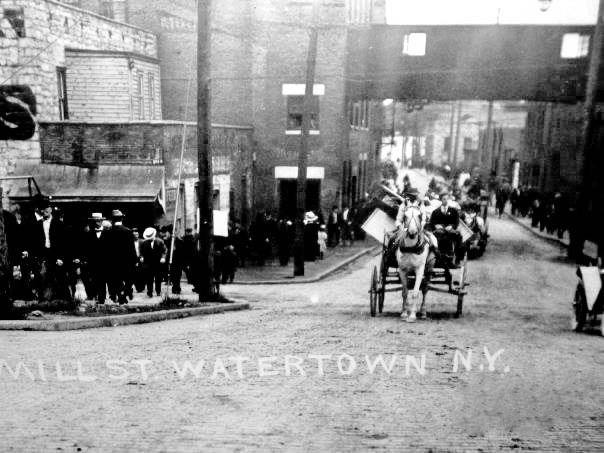
In 1922, Knowlton Bros. leased both the Union and Jefferson Mills space to the Watertown Mattress Company, aka Watertown Bedding, for nearly twenty years, until owners and brothers Leon & Lawrence Clickner acquired the title outright in 1944 (Leon also owned the former General Delos B. Sacket House at 451 Broadway in Cape Vincent). The Watertown Mattress Company then sold the buildings in March of 1952 to Anthony Rose, owner of Frederick’s Dry Cleaners.
By this time, the existing structures bore little resemblance to the Mill Street mills they once were, having undergone significant remodeling over the years. The former Jefferson Mill didn’t even resemble the advertisement to rent the building, as shown below from 1952 (see the news photo in the gallery from the 1952 article for comparison).
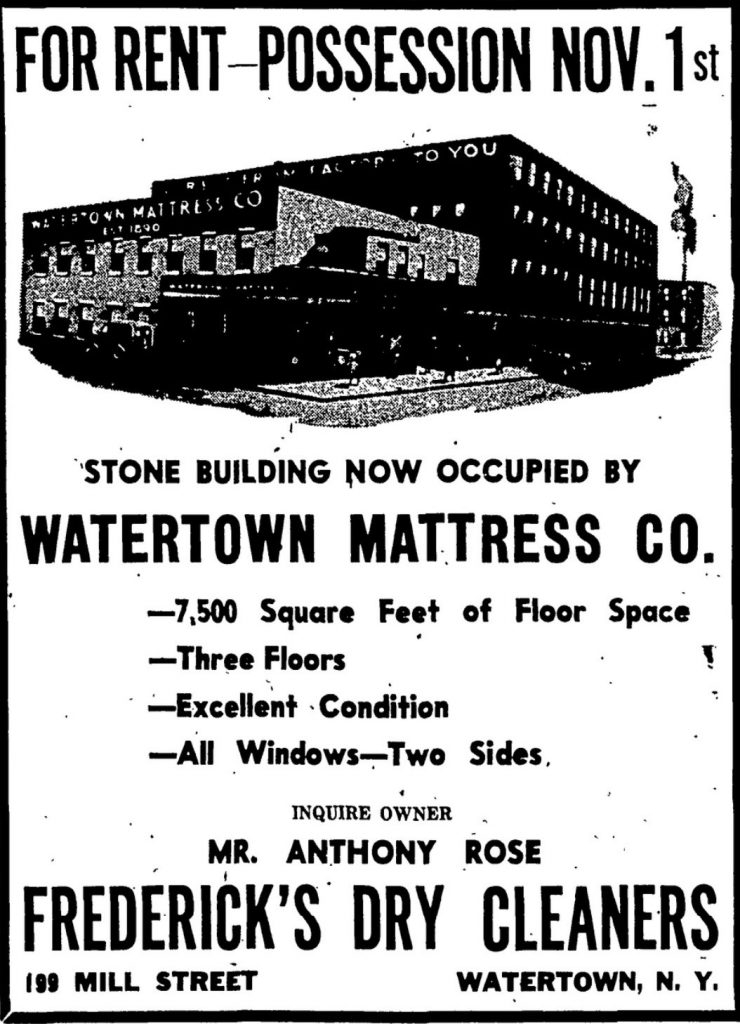
In March of 1963, Mr. and Mrs. Leon T. Derouin purchased the buildings from Anthony Rose, then renumbered them from 139-153 to 137-139 Mill Street. The family-run business occupied the location up until December 30, 2021, before closing for good.
